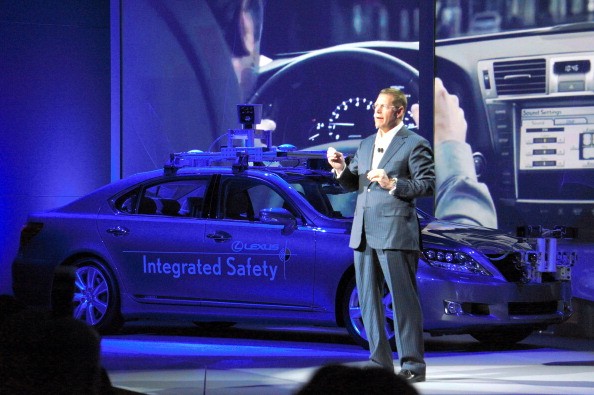Competition appears to be growing stiffer and stiffer among the automaker companies like Google, Apple, Tesla, Mercedes-Benz, and Toyota with the plan to roll out a self-driving car by 2020 from Toyota.
According to The Wall Street Journal, Toyota announced on Oct. 6, Tuesday that it is working on its self-driving car - one that will reportedly hit the roads by 2020. Although it does not comes as a surprise for Toyota to join some Silicon Valley competitors by jumping into the future-friendly space, what might shock car enthusiasts is the assertion the automaker made that it has been researching and developing autonomous driving technology "since the 1990s."
Working with the technology longer than some of the key players in the industry might give Toyota a competitive advantage.
Moritaka Yoshida, Toyota's chief safety executive said, "We have spent a long time to develop the technology. We have advantages and we want to maintain them as we push forward."
To be more precise, Toyota used the term "automated driving" to describe the new system that the company is working on.
Masahiro Iwasaki, an engineer working with the technology added, "We were afraid that by using the term 'automated driving,' people would misunderstand that humans are not involved at all."
As part of its trial, Toyota already released a prototype autonomous vehicle, Lexus GS-based prototype of its luxury brand, which drove successfully on the highway, changed lanes and safely exited in Tokyo, Tech Times reported.
Just like Google's car, Toyota's self-driving vehicle sports sensors and cameras to collect information and detect its surroundings. Iwasaki emphasized that the prototype is meant to help drivers as opposed to replacing them.
The company will have to reduce the cost of purchasing sensors to facilitate effective introduction of the autonomous cars as a mass-market vehicle.



























